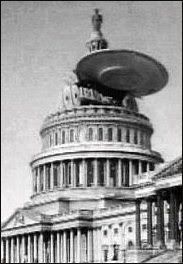"Ygor, peel me a grape..."

The Bush administration claims detainees can't disclose how they were treated.
The trouble is that at least some of the secrets the government is trying to protect are the very techniques used against people such as Mr. Khan -- and its means of protecting them is to muzzle him about what the CIA did to him. CIA official Marilyn A. Dorn said in an affidavit that Mr. Khan might reveal "the conditions of detention and specific alternative interrogation procedures." In other words, grossly mistreating a detainee now justifies keeping him quiet.
The problem with this argument is not just its Kafkaesque sheen. If the courts accept it, it would have vast practical implications. The integrity of any military trials of the high-value detainees will depend on their excluding evidence obtained by unduly coercive means. By the logic of the government's argument, however, all of that litigation will have to take place in secret. Detainees are also supposed to be able to appeal their status as enemy combatants to the federal appeals court here in Washington. The government's logic would all but assure that the bulk of any such appeal would be secret as well. So accepting this theory would mean that no claim of torture could be resolved in a transparent and accountable fashion. Given the importance of open trials for the high-value detainees, it's hard to imagine a principle that would more thwart the effort to bring them credibly to justice. Washington Post
Labels: Iraq War





















0 Comments:
Post a Comment
<< Home